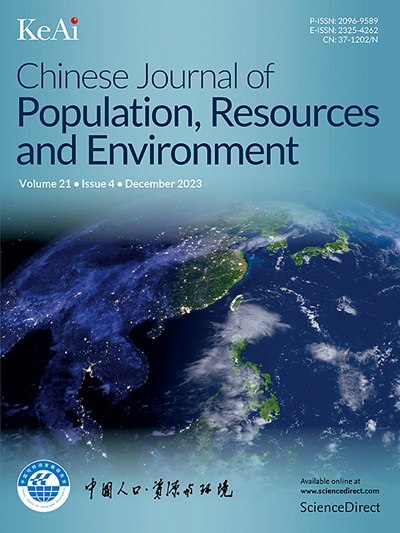加强电子废物治理:瑞士-加纳修正案下的可持续跨境流动决策框架
IF 4.8
4区 环境科学与生态学
Q2 ENVIRONMENTAL STUDIES
Chinese Journal of Population Resources and Environment
Pub Date : 2025-09-01
DOI:10.1016/j.cjpre.2025.07.003
引用次数: 0
摘要
《巴塞尔公约》的瑞士-加纳修正案标志着全球电子废物管理的一个重要里程碑,该修正案要求所有废旧电子电气设备(WEEE)的越境转移,无论其危害分类如何,都必须事先知情同意(PIC)。然而,由于监管空白、基础设施有限以及非法电子废物进口的不断涌入,发展中国家在遵守这些修正案方面遇到了重大挑战。本研究以马来西亚为例,评估发展中国家实施修正案的准备情况,突出可转移的解决方案和建议。本研究采用混合方法,结合定性专题分析和文献计量测绘来分析学术文献、官方报告和国际案例研究。调查结果表明,虽然马来西亚已经制定了基本政策,但在解决非正式回收做法、改善执法机制和建立有效实施知情同意程序的机构能力方面仍存在重大挑战。本研究确定了需要改进的关键领域,包括监管改革、基础设施建设和加强监测系统。为了解决这些问题,本研究提出了一个六要素综合决策框架,强调立法和监管更新、基础设施发展、国际合作、能力建设和培训、公众意识和参与以及强有力的监督和执行机制。虽然该框架是为马来西亚量身定制的,但它提供了可转移的解决方案,使电子废物管理系统与瑞士-加纳修正案保持一致,为发展中国家加强监管准备、减轻环境风险和促进全球可持续性提供了一条途径。本文章由计算机程序翻译,如有差异,请以英文原文为准。
Strengthening e-waste governance: A decision framework for sustainable transboundary movements under the Swiss-Ghana Amendments
The Swiss-Ghana Amendments to the Basel Convention mark a significant milestone in global e-waste (electronic waste) management, requiring Prior Informed Consent (PIC) for all transboundary movements of Waste Electrical and Electronic Equipment (WEEE), regardless of their hazard classification. However, developing nations encounter substantial challenges in adhering to these amendments due to regulatory gaps, limited infrastructure, and an increasing influx of illicit e-waste imports. This study uses Malaysia as a case study to evaluate the readiness of developing nations to implement amendments, highlighting transferable solutions and recommendations. This study employs a mixed-methods approach that combines qualitative thematic analysis and bibliometric mapping to analyze academic literature, official reports, and international case studies. The findings reveal that while Malaysia has foundational policies in place, significant challenges remain in addressing informal recycling practices, improving enforcement mechanisms, and building the institutional capacity to implement PIC procedures effectively. This study identifies key areas for improvement, including regulatory reforms, infrastructure development, and enhanced monitoring systems. To address these issues, this study proposes a six-key Integrated Decision Framework that emphasizes legislative and regulatory updates, infrastructure development, international cooperation, capacity building and training, public awareness and engagement, and robust monitoring and enforcement mechanisms. Although tailored to Malaysia, the framework offers transferable solutions to align e-waste management systems with the Swiss-Ghana Amendments, providing a pathway for developing nations to strengthen regulatory readiness, mitigate environmental risks, and contribute to global sustainability.
求助全文
通过发布文献求助,成功后即可免费获取论文全文。
去求助
来源期刊

Chinese Journal of Population Resources and Environment
ENVIRONMENTAL STUDIES-
CiteScore
4.30
自引率
1.10%
发文量
791
审稿时长
79 days
期刊介绍:
The Chinese Journal of Population, Resources and Environment (CJPRE) is a peer-reviewed international academic journal that publishes original research in the fields of economic, population, resource, and environment studies as they relate to sustainable development. The journal aims to address and evaluate theoretical frameworks, capability building initiatives, strategic goals, ethical values, empirical research, methodologies, and techniques in the field. CJPRE began publication in 1992 and is sponsored by the Chinese Society for Sustainable Development (CSSD), the Research Center for Sustainable Development of Shandong Province, the Administrative Center for China's Agenda 21 (ACCA21), and Shandong Normal University. The Chinese title of the journal was inscribed by the former Chinese leader, Mr. Deng Xiaoping. Initially focused on China's advances in sustainable development, CJPRE now also highlights global developments from both developed and developing countries.
 求助内容:
求助内容: 应助结果提醒方式:
应助结果提醒方式:


